9 Things Your Bladder Will Thank You for Doing, Doctors Say
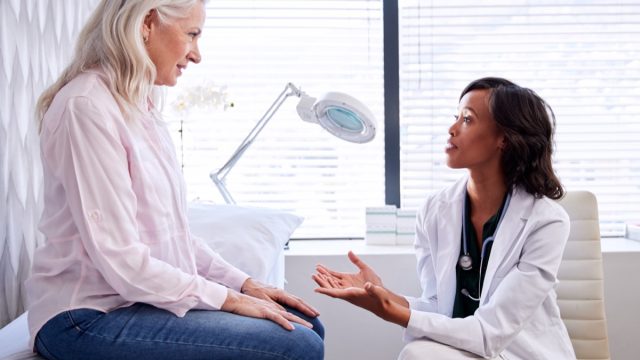
Your urinary system helps to filter waste and excessive fluid from the bloodstream, and your bladder is an important part of this process. Situated in the lower abdomen, the bladder stores urine until you’re ready to pass it. Though for many of us, bladder health is low on the priority list, experts say we should be taking greater care of this important organ.
“We take our bladders for granted when they are functioning well, but when they aren’t, we can develop urinary incontinence, frequent urination, bladder pain, bladder infections, bladder prolapse in women, and bladder cancer,” explains Victoria Scott, MD, a Los Angeles-based urogynecologist and co-author of A Woman’s Guide to Her Pelvic Floor: What the F*@# is Going On Down There. She recommends putting your bladder health front and center before a problem develops.
Wondering how you can improve your bladder health starting today? Read on for nine things your bladder will thank you for doing, according to doctors.
READ THIS NEXT: If You Notice This in the Bathroom, Get Checked for Diabetes, Experts Say.
1
Avoiding bladder irritants

One way to promote good bladder health is to avoid things that irritate the organ, says Scott. She notes that by limiting your intake of “caffeine, alcohol, citrus, spicy food and drinks, and artificial sweeteners,” you can help prevent urinary incontinence, urinary frequency, and bladder pain.
Not sure which foods could be irritating your bladder? According to Johns Hopkins Center for Pelvic Health, you can try an elimination diet to identify the source of your discomfort.
“If bladder symptoms are related to dietary factors, strict adherence to a diet that eliminates the food should bring marked relief in 10 days,” their experts write. “Once you are feeling better, you can begin to add foods back into your diet, one at a time. If symptoms return, you will be able to identify the irritant.”
READ THIS NEXT: What Really Happens to Your Body If You Don’t Go to the Bathroom Every Day.
2
Staying hydrated

Drinking ample water can also help your bladder and kidneys flush out irritants and bacteria from the urinary tract. This can help reduce your risk of infection, inflammation, and other bladder conditions.
“A moderate amount of water every day keeps your bladder happiest,” says Scott. The Mayo Clinic says men can stay adequately hydrated by drinking 15.5 cups of fluid per day, while women should drink 11.5 cups of fluid per day for optimal health.
3
Keeping bacteria at bay
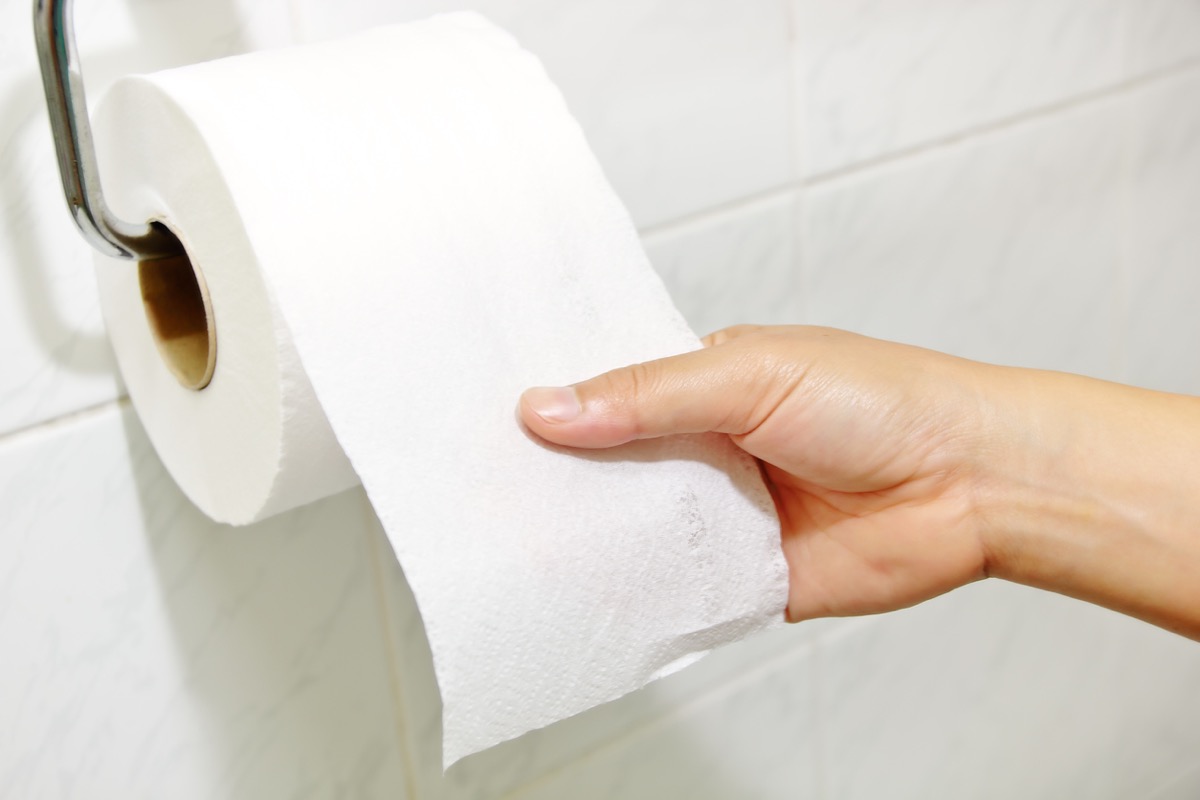
There are several ways to avoid a buildup of bacteria in your urinary tract, and your bladder will thank you for making them everyday habits.
In particular, urinating after sex and wiping front to back can help prevent bladder infections, experts say. “Sex increases the risk that bacteria can be introduced into the urethra and then enter the bladder to cause a bladder infection, so peeing right after sex will help flush out bacteria,” explains Scott. “Wiping front to back also decreases the risk of introducing bacteria into the urethra and bladder,” she adds.
4
Doing pelvic floor exercises

Urinary incontinence is a common problem that affects over 50 percent of adult women, according to the Mayo Clinic. That’s why Scott recommends doing regular pelvic floor muscle exercises, also known as Kegels.
She says these exercises can minimize your risk of not only urinary incontinence, but also urinary frequency and bladder prolapse, which is when “the bladder drops down into the vagina due to weakened pelvic floor muscles.” She adds that pelvic floor muscle exercises help to strengthen the pelvic floor, which is important for supporting pelvic organs—including the bladder, urethra, vagina, uterus and intestines—and maintaining their function.
5
Quitting smoking
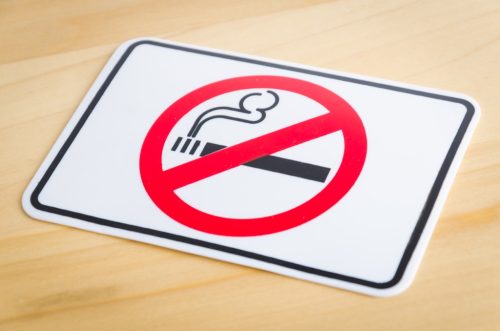
According to the American Cancer Society, smoking is the single greatest risk factor for bladder cancer. In fact, half of all bladder cancer cases in men and women are attributed to the use of tobacco products.
A 2011 study published in the Journal of the American Medical Association (JAMA) illustrates the benefits of quitting—and the even greater benefits of never smoking in the first place. That study reported that people who once smoked but have since quit were at a twofold risk of developing bladder cancer.
However, those who continued to smoke were at an even greater risk. “Current smokers in our study had a fourfold excess risk of developing bladder cancer, compared to a threefold excess risk in previous studies, possibly due to changes in cigarette composition or smoking habits over the years,” said Neal Freedman, PhD, MPH, a researcher at the National Cancer Institute (NCI) and co-author of the study, via press release.
6
Going when you need to go
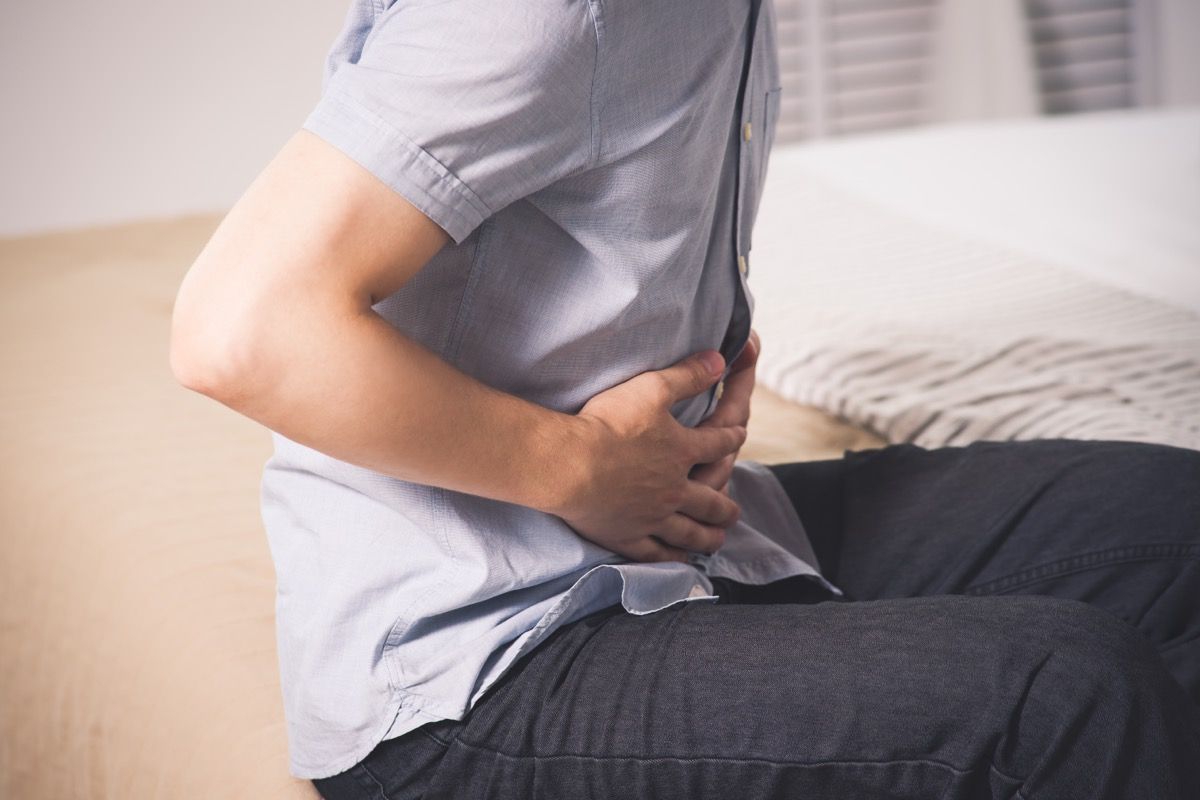
Scott says that another way to care for your bladder health is to avoid constipation. “Too much stool in the colon can impair bladder function. It can also increase risk of urinary tract infections,” she explains.
“There is a close relationship between the muscles and nerves that control bladder functions and those that control bowel movements,” says the UCSF Department of Urology, adding that the bladder and the colon are close together in the body. By eating high-fiber foods, staying hydrated, getting regular exercise, and using the restroom when you feel the urge to go, you can promote better digestive and bladder health.
For more health news sent directly to your inbox, sign up for our daily newsletter.
7
Emptying your bladder fully
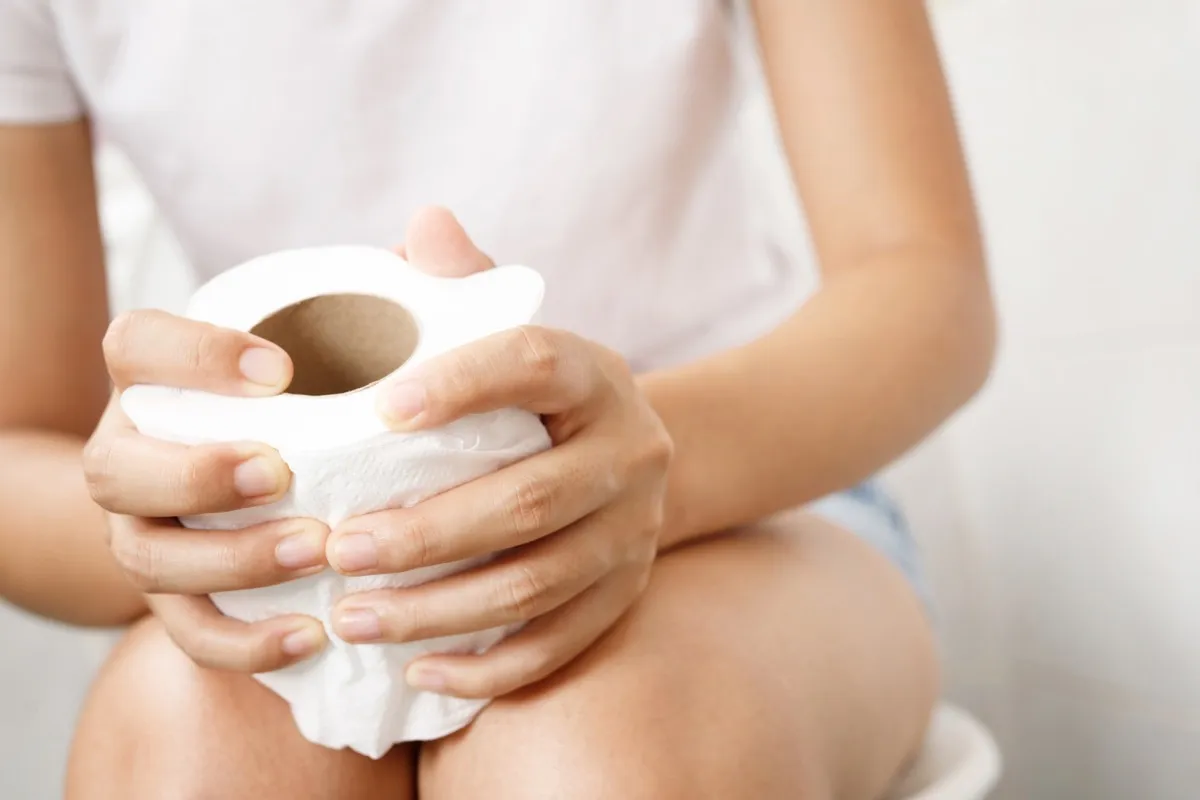
Relaxing your muscles fully when you urinate is important to your bladder health, which is why you should always sit down on the toilet rather than hovering over it. “For women, sitting down completely on the toilet is crucial,” says Jennifer Spencer, PT, DPT, CLT, OCS, a physical therapist and the founder of Magic City Physical Therapy. “Hovering over the toilet and urinating does not allow the pelvic floor muscles to completely relax, and will lead to urinary retention,” she explains.
Scott agrees that this is important for maintaining optimal bladder health. “Consider using a ‘squatty potty’ stool to help relax your muscles if you have a hard time emptying the bladder or starting the stream,” she advises.
8
But not emptying it too often
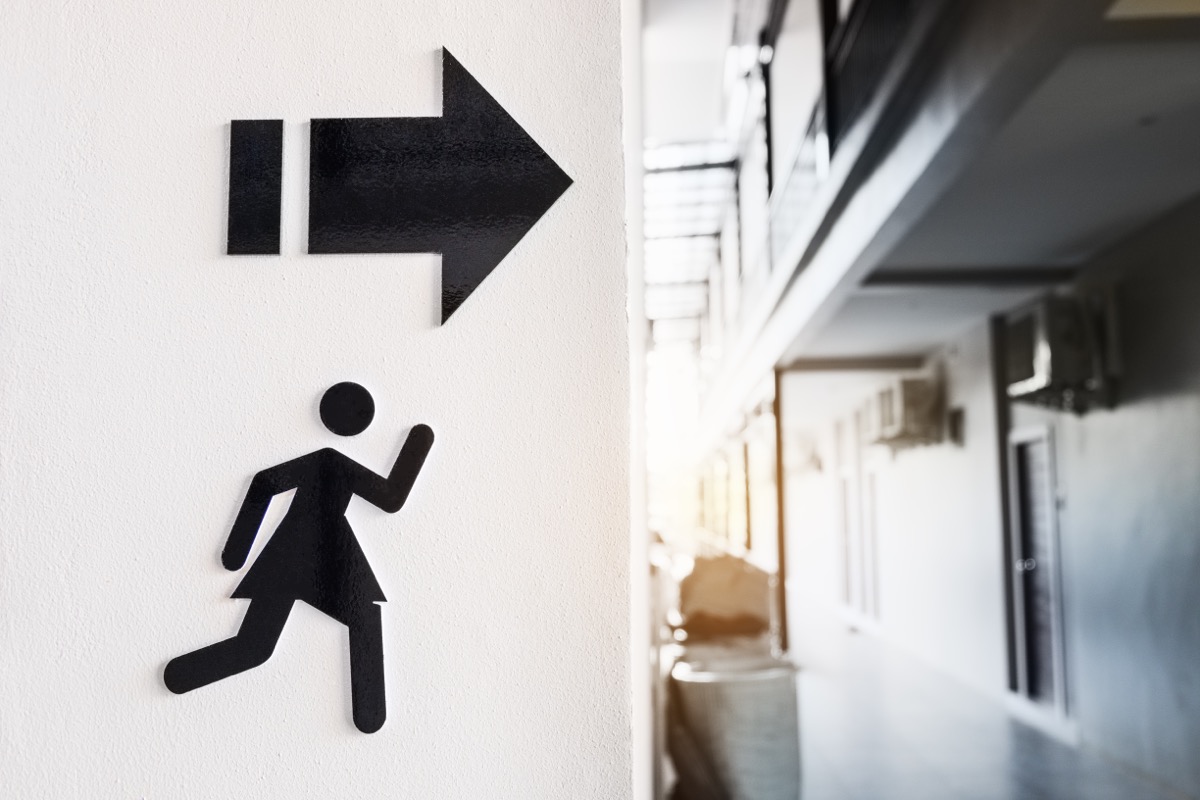
Though it’s important to empty your bladder fully when you pee, you should refrain from going to the bathroom more often than you need. “Your bladder can hold approximately 16 ounces before you should get an urge to pee,” says Kathleen Kilburg, PT, ATC, CHC, MCMT, owner of The Bladder Coach and a clinical specialist in pelvic health physical therapy, adding that the average adult should urinate five to eight times per day.
“If you frequently pee ‘just in case’ you are training your bladder to contract before it’s actually full, leading to increased urinary frequency and urgency,” Kilburg notes.
9
Seeing a doctor about concerning symptoms

Last but certainly not least, you should always see a doctor if you suspect something could be wrong with your bladder. In particular, Scott says you should always see a doctor if you experience “blood in the urine, burning or pain with urination, waking up to pee too often at night, peeing too frequently during the day, or leaking urine that is bothersome or preventing you from doing certain activities.”
Even if you don’t suspect a problem, you can speak with your doctor to learn more about how to maintain good bladder health before a condition develops.
Best Life offers the most up-to-date information from top experts, new research, and health agencies, but our content is not meant to be a substitute for professional guidance. When it comes to the medication you’re taking or any other health questions you have, always consult your healthcare provider directly.
- Source: https://www.mayoclinic.org/healthy-lifestyle/nutrition-and-healthy-eating/in-depth/water/art-20044256
- Source: https://www.mayoclinichealthsystem.org/hometown-health/speaking-of-health/is-urine-incontinence-normal-for-women
- Source: https://jamanetwork.com/journals/jama/fullarticle/1104233
- Source: https://www.nih.gov/news-events/nih-research-matters/smoking-bladder-cancer